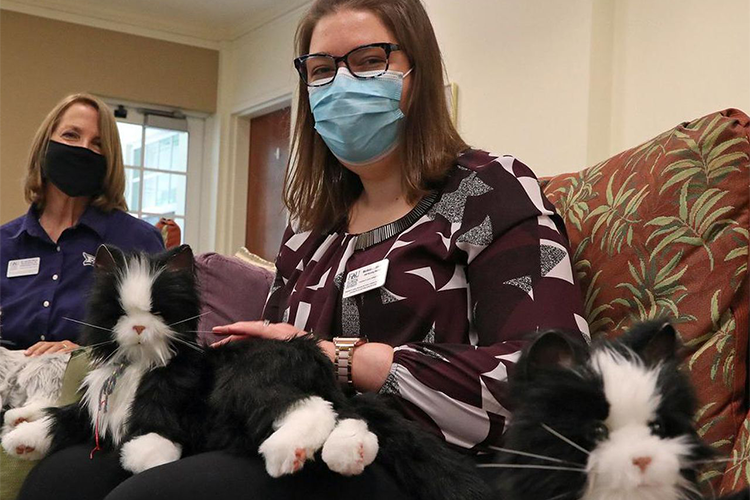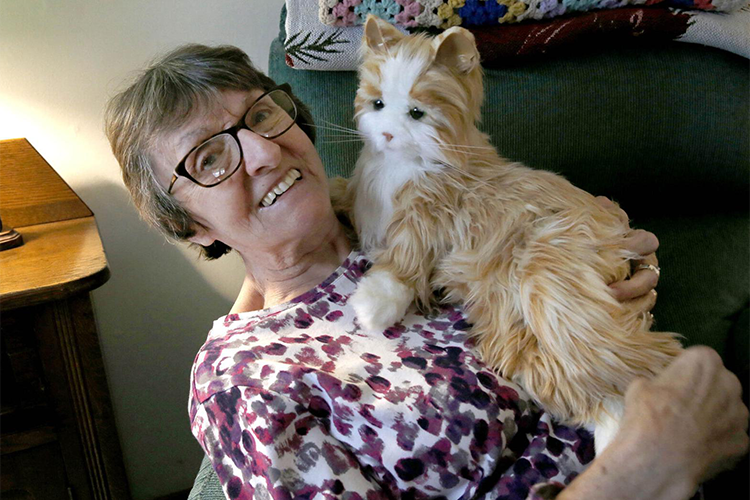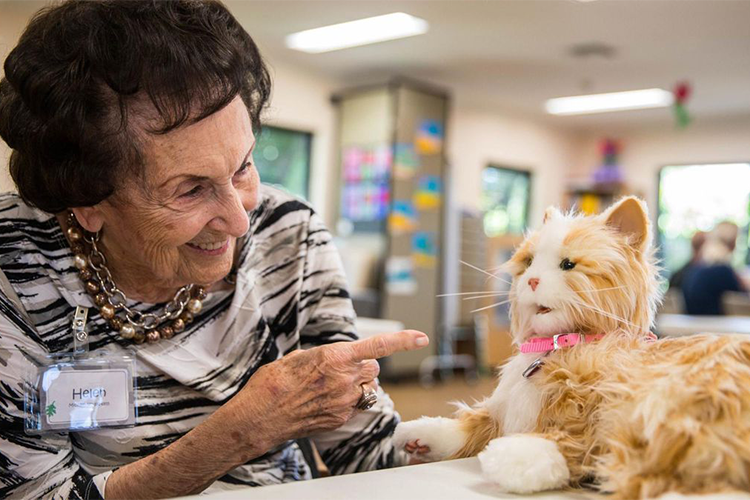Individuals with dementia often experience behavioral and psychological symptoms such as depression, aggression, and anxiety. While pet therapy is known to be a cost-effective and therapeutic intervention for improving mood and behavior in older adults, little is known about pet therapy in adult day centers.

With the help of a cuddly and "furry" companion, researchers from Florida Atlantic University's Christine E. Lynn College of Nursing tested the effectiveness of affordable, interactive robotic pet cats to improve mood, behavior, and cognition in older adults with mild to moderate dementia. Researchers assessed mood and behavioral symptoms using the Alzheimer's Disease and Related Dementias Mood Scale, the Observed Emotion Rating Scale, and the Cornell Scale for Depression in Dementia. They also assessed cognition via the Mini-Mental State Examination.

Results showed that intervention with a robotic pet cat improved all mood scores over time, with significant improvements in the Observed Emotion Rating Scale and the Cornell Scale of Depression in Dementia. More than half of the participants scored higher on the Mini-Mental State Examination post-test than the pretest, with slight to moderate improvement in attention/calculation, language, and registration. Post-test scores on the Alzheimer's Disease and Related Dementias Mood Scale were six points higher than pretest conditions.

Researchers frequently observed study participants smiling and talking to their robotic cats and expressing sentiments such as, "the cat is looking at me like someone who listens to me and loves me." They believed that the robotic pet was responding to their statements through meowing, turning their head, or blinking their eyes and that they were having a conversation with the pet. Several of the caregivers reported that their loved one had slept with the cat, held onto the cat when sitting or consistently played with the cat. One participant even slept with her robotic pet cat while she was hospitalized.

By using therapeutic pets instead of living pets, there was no concern about the safety of the pet, feeding them, taking them outside, or making sure they are up-to-date with their vaccines. In addition, there were no fears about participant safety due to possible pet aggression, allergies, tripping over them, and the costs associated with caring for a live animal.
#This article"Robotic cat boosts mood and cognition in adults with dementia" from "Cloud Pet", the link of this article is https://www.cloud-pet.com/blog/Robotic-cat-boosts-mood-and-cognition-in-adults-with-dementia.html, please keep the link for reprinting.#







